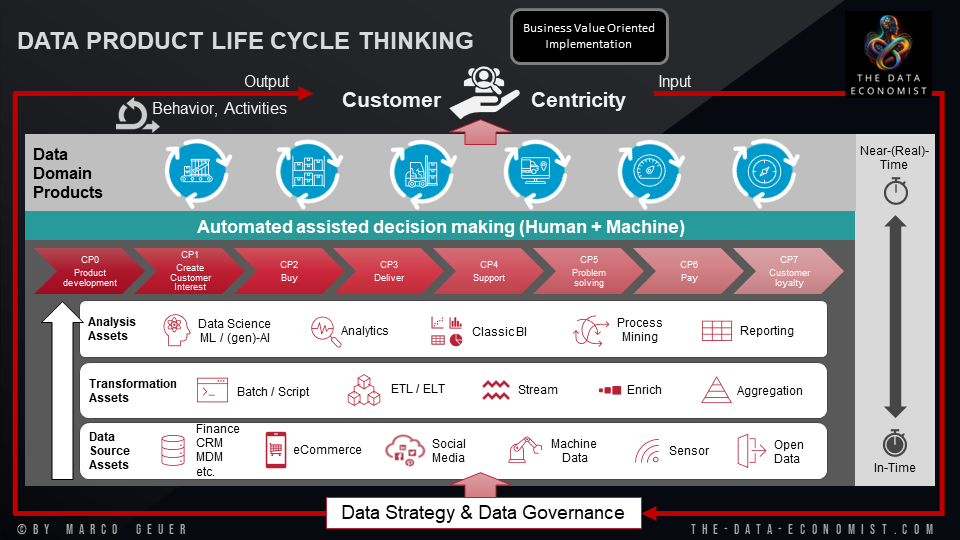The power of data culture
Why data driven decision making and data products are critical for businesses to compete.
In today's business world, the importance of data can no longer be overlooked. Data is the lifeblood of modern businesses and is the foundation for competitive advantage, improved customer experiences and breakthrough innovation. A comprehensive understanding of the importance of a data-driven culture and the value of data products is therefore crucial. A data-driven culture can help make fact-based decisions and increase operational efficiency, while thinking in terms of data products allows companies to effectively monetise their data assets and create sustainable value. Below, I highlight the benefits and characteristics of these aspects in 3 parts.
1. Why is it beneficial to build a data driven culture?
Informed decision-making: A data driven culture enables companies to make decisions based on actual data, not just intuition or experience. This minimises risk and promotes accurate business strategies.
Efficiency and productivity: With access to data, processes can be constantly monitored and optimised. This increases efficiency and productivity as resources can be targeted.
Customer focus: By analysing customer data, products and services can be better adapted to the needs of customers, which in turn increases customer satisfaction and loyalty.
Competitive advantages: Companies that have a data-driven culture can identify and respond to market trends more quickly. This gives them a decisive advantage over the competition.
Agile responsiveness: A data-driven culture promotes agility, as changes in the business environment can be quickly identified and appropriate adjustments made.
2. Why does it make sense to think in terms of data products?
Scalable solutions: Data products such as dashboards, analytics tools or data APIs are scalable and can therefore add value to a broad user base.
Monetisation of data and product enhancement: Data products enable companies to effectively monetise their data by turning it into actionable insights or services. In addition, data products can add value to existing products, allowing prices to stabilise or even increase as the overall product delivers more value to the customer.
Fostering interdisciplinarity: The development of data products requires the interplay of different disciplines such as data science, engineering and business strategy, leading to more innovative solutions.
Adaptability: Data products are usually modular and can therefore be easily adapted to changing requirements or new data sources.
Sustainable value creation: The creation of data products creates lasting added value. They enable companies to continuously learn from their data and to constantly evolve.
3. what characterises a data product according to the definition from Data Mesh?
Ownership: In a data mesh, each data product is autonomous and managed by a dedicated team responsible for the quality, security and accessibility of the product.
Domain orientation: Data products are closely linked to specific business areas or "domains", which enables better integration and use of the data.
Consumer focus: Data Mesh emphasises the importance of data as a product that should meet the needs of end users. This includes usability, documentation and support.
Scalability: In the Data Mesh approach, data products are designed to be easily scalable, both in terms of data volume and number of end users.
Technological support through a data fabric: In the data mesh approach, all data products are technologically supported by a data factory, which ensures uniform standards and improved interoperability.
In summary, establishing a data-driven culture in combination with thinking in terms of data products and understanding their characteristics offers a wealth of benefits ranging from fact-based decisions to increased efficiency and the creation of new business models.

Data Governance, Data Strategy, Data Driven Company, Data Mesh, Data Fabric, Data Product, Data Driven
- Geändert am .
- Aufrufe: 6489
